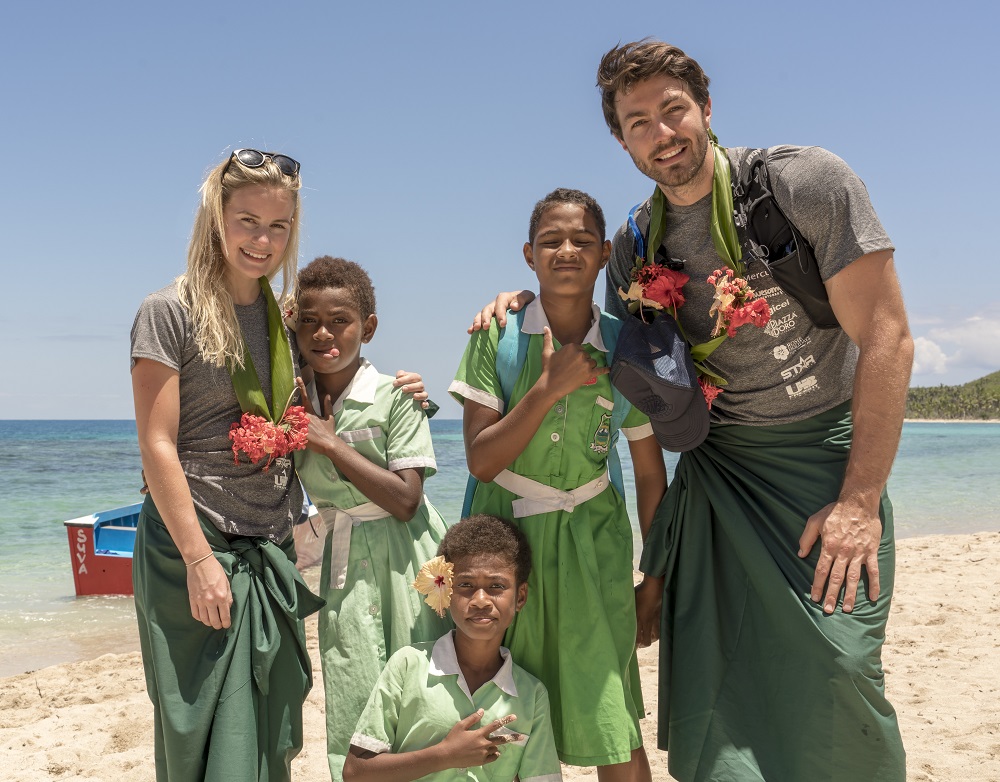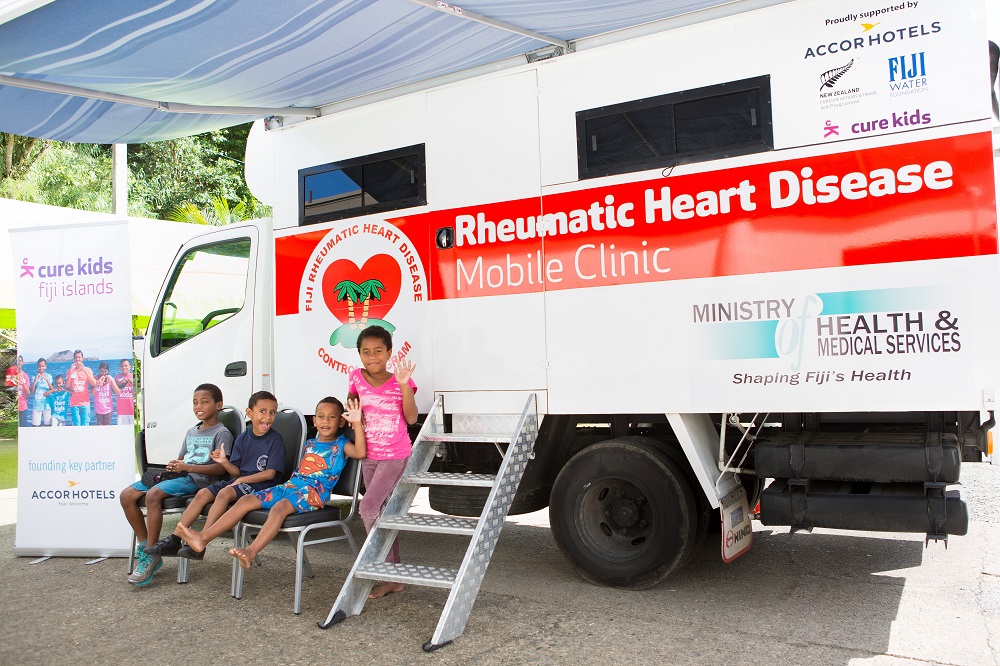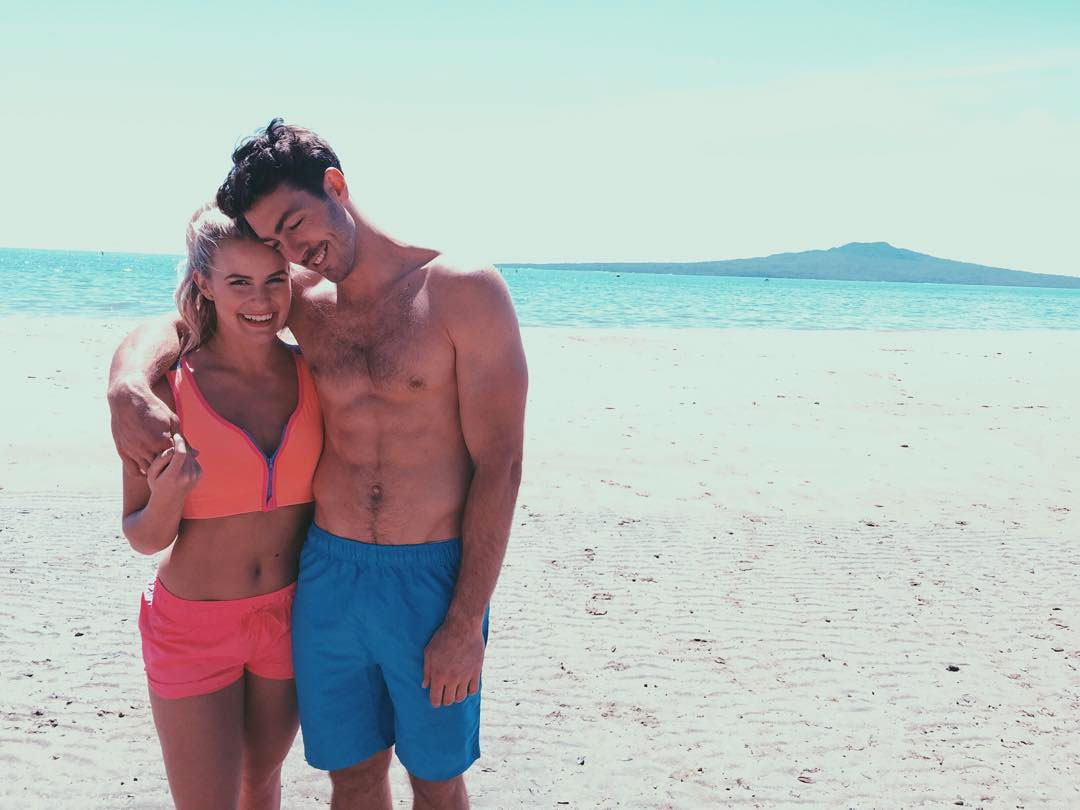The Bachelor lovebirds have just returned from Fiji where they took part in an epic endurance test to help raise money and awareness for a cause close to the celebrity couple’s heart.
The Cure Kids ambassadors put it all on the line, along with 100 other competitors, in the Race to Survive for Cure Kids Fiji to help children in the Pacific nation suffering from rheumatic heart disease.
The energetic pair pushed themselves to their limits and took on all sorts of challenges like abseiling and scaling coconut trees, as well as giving some on-the-ground assistance by installing water tanks in remote villages.
“The biggest challenge of the Race for me was swimming,” said Matilda. “I’ve never been a strong swimmer, but I did a lot of swim training leading up to the event and I gave it everything in Fiji and gained confidence in the water. The biggest challenge for Art was exercising in the intense heat!”
The successful event raised $564,000 (FJ$841,000) for Cure Kids Fiji. The funds will go towards the life-saving work the organisation is doing in partnership with the Fiji Ministry of Health and Medical Services to control and prevent rheumatic heart disease – a leading cause of death in young people in Fiji.

Matilda Rice and Art Green pose with children of Fiji’s Kese Village.
“Seeing the work that Cure Kids does in Fiji and meeting happy, smiling kids was life-changing for us. Cure Kids do incredible work to improve these kids’ lives,” said Art.
While the disease is still active in New Zealand – over 100 children are diagnosed with rheumatic fever each year – research, backed by Cure Kids, into control and prevention of rheumatic heart disease is ongoing.

The mobile rheumatic heart disease clinic brings life-saving medical services to children and families in Fiji.
Starship Hospital Children’s Heart Specialist Associate Professor Nigel said although there had been a decrease in rates of the disease in New Zealand, largely due to the great system of community nurses in place, Fiji still needed some help to prevent the illness spreading.
“Rates have fallen, but we don’t know if the reduction will be sustained However, in Fiji, the dedicated RHD nurses are thin on the ground and preventing rheumatic fever has had low rates of success, but with this Project, we can support nurses in communities, for example, through training, and encourage community members to go back to clinics for the medication they need.”
.jpg)

